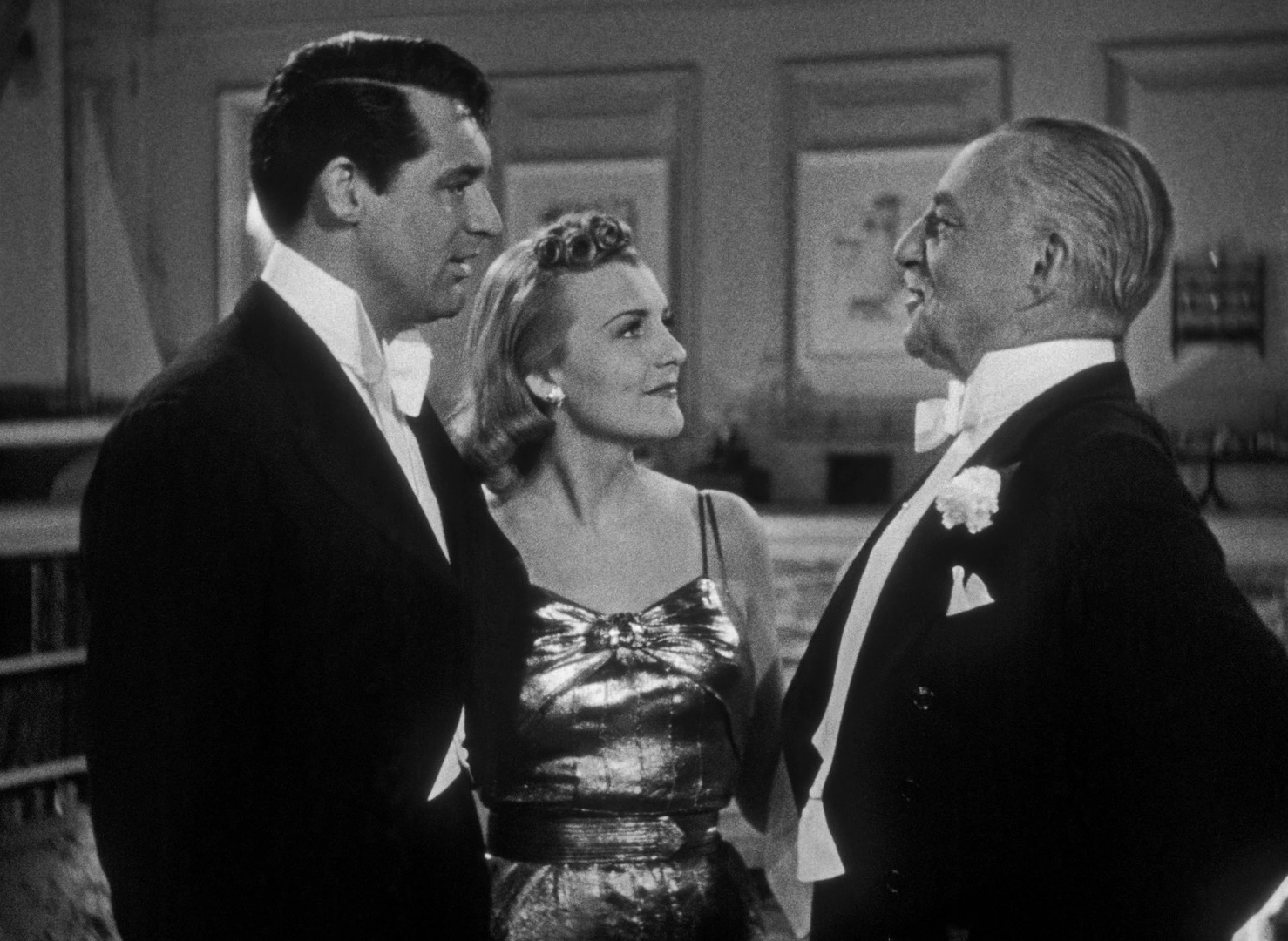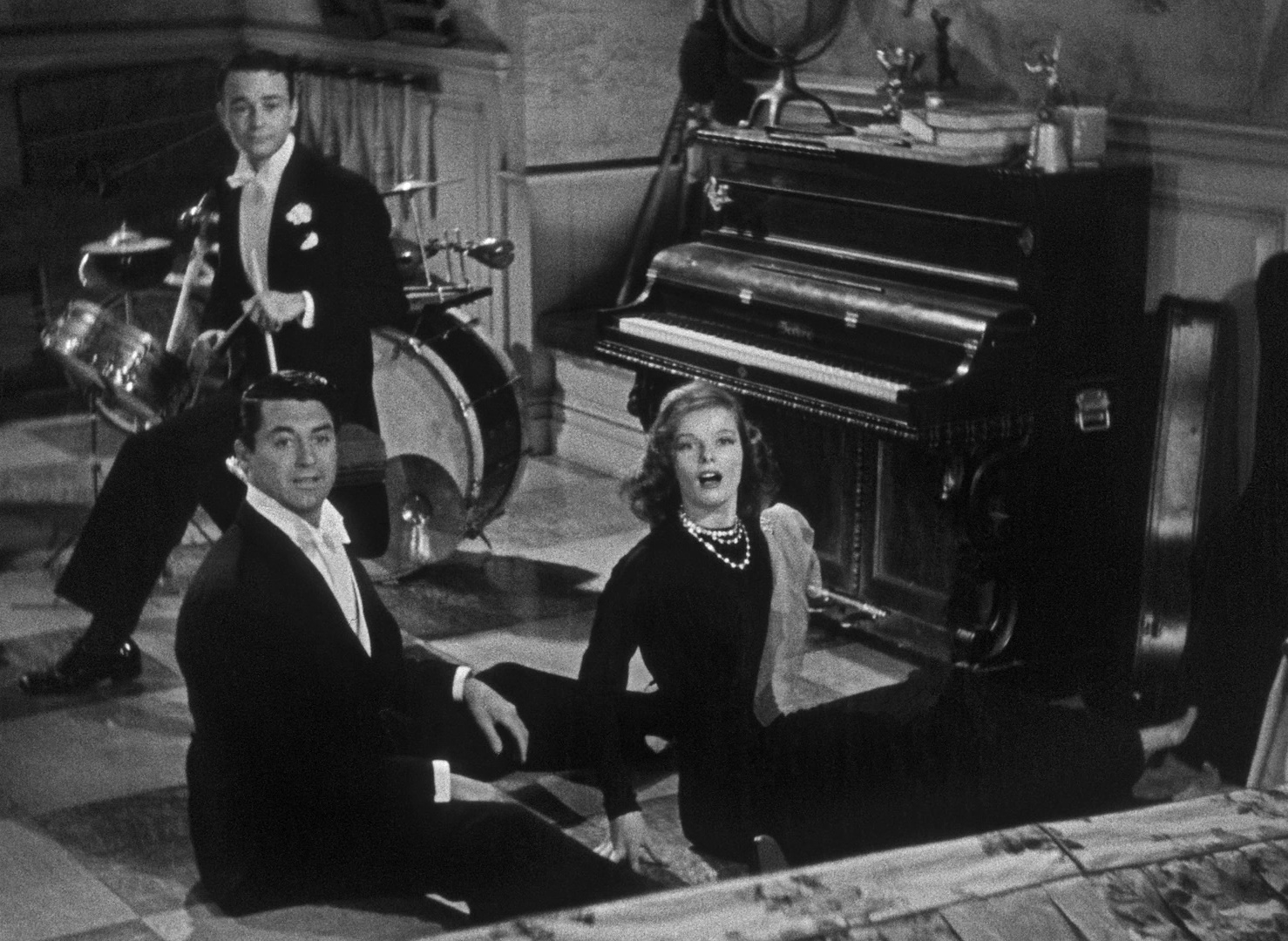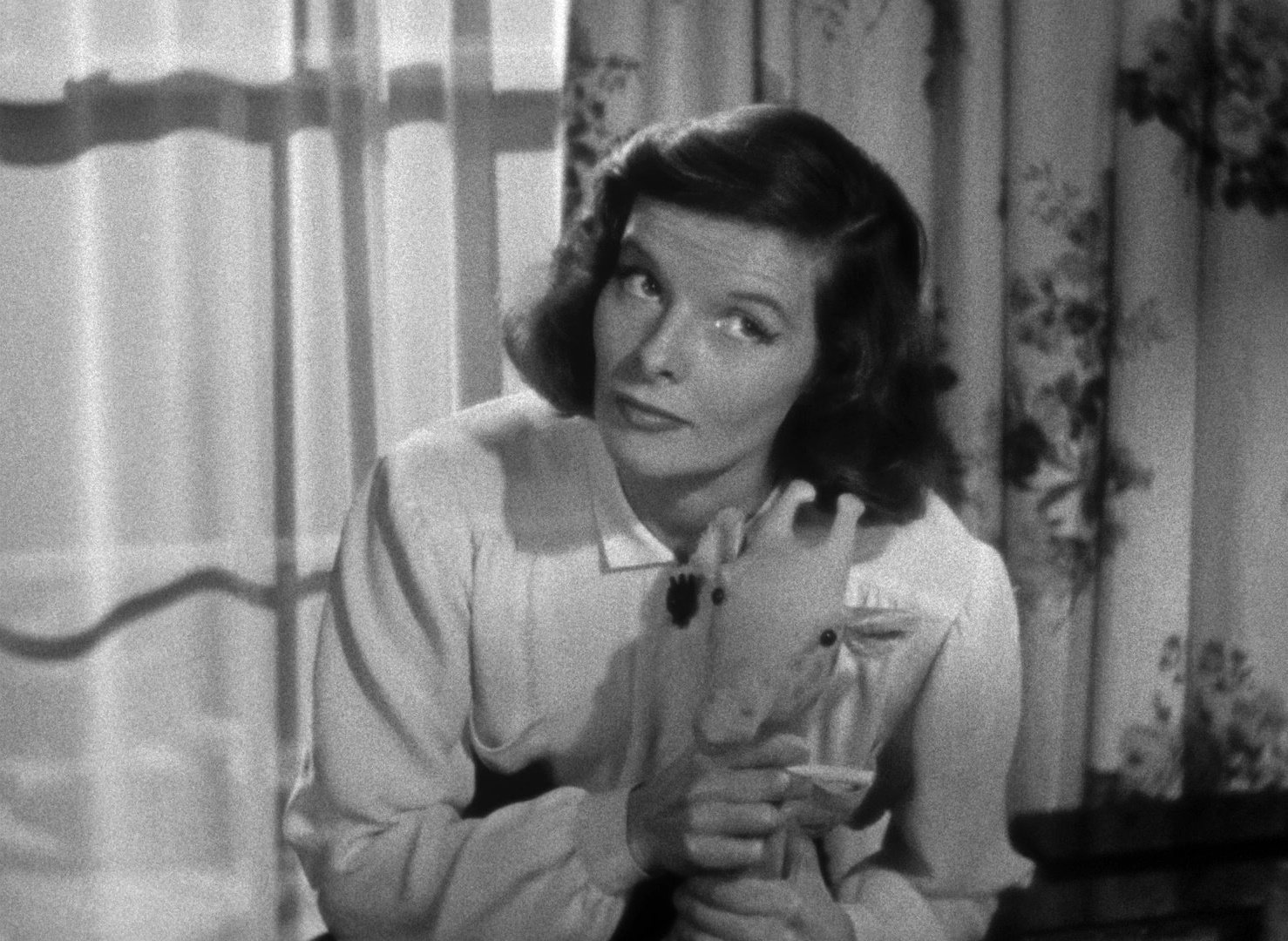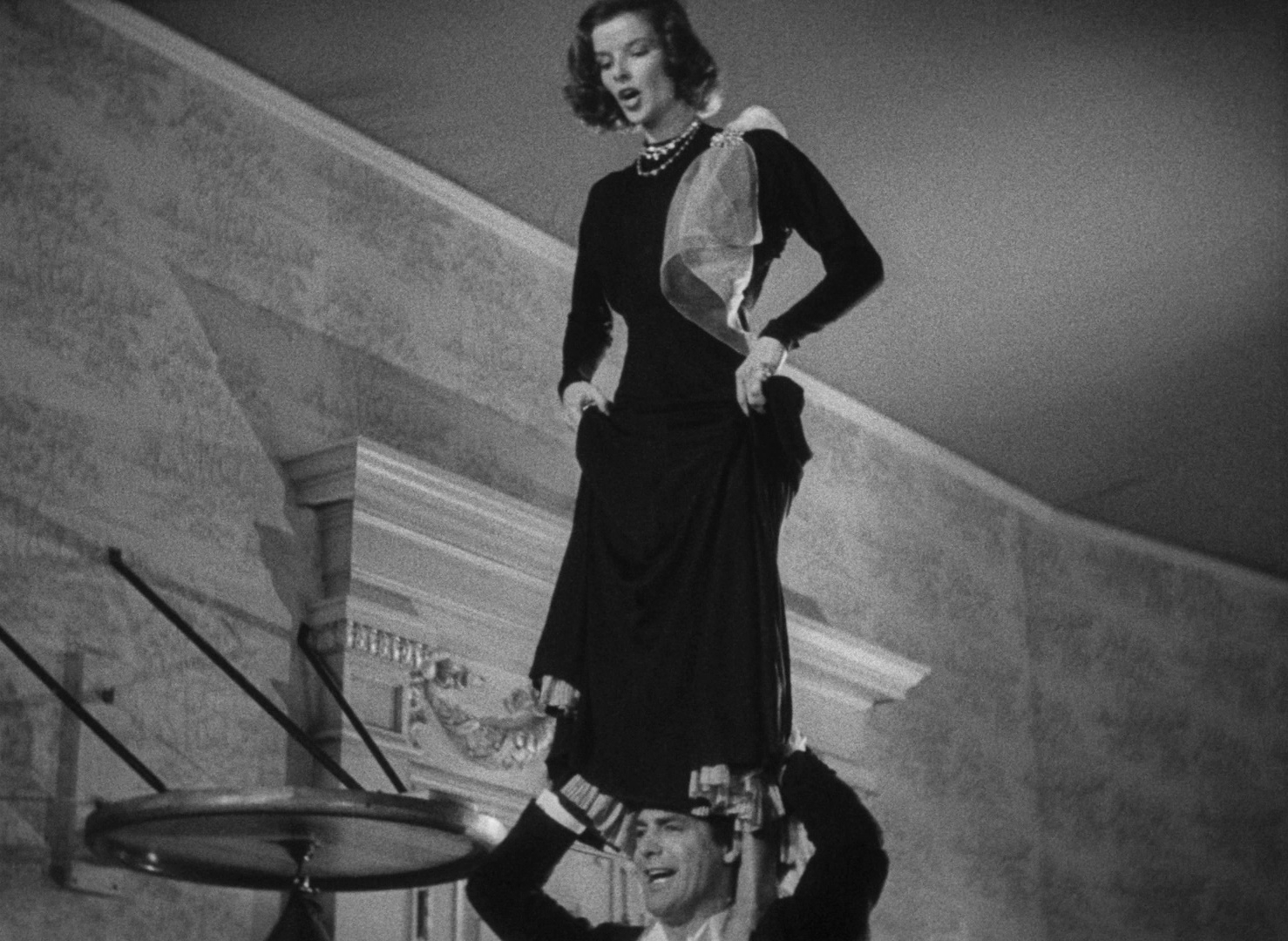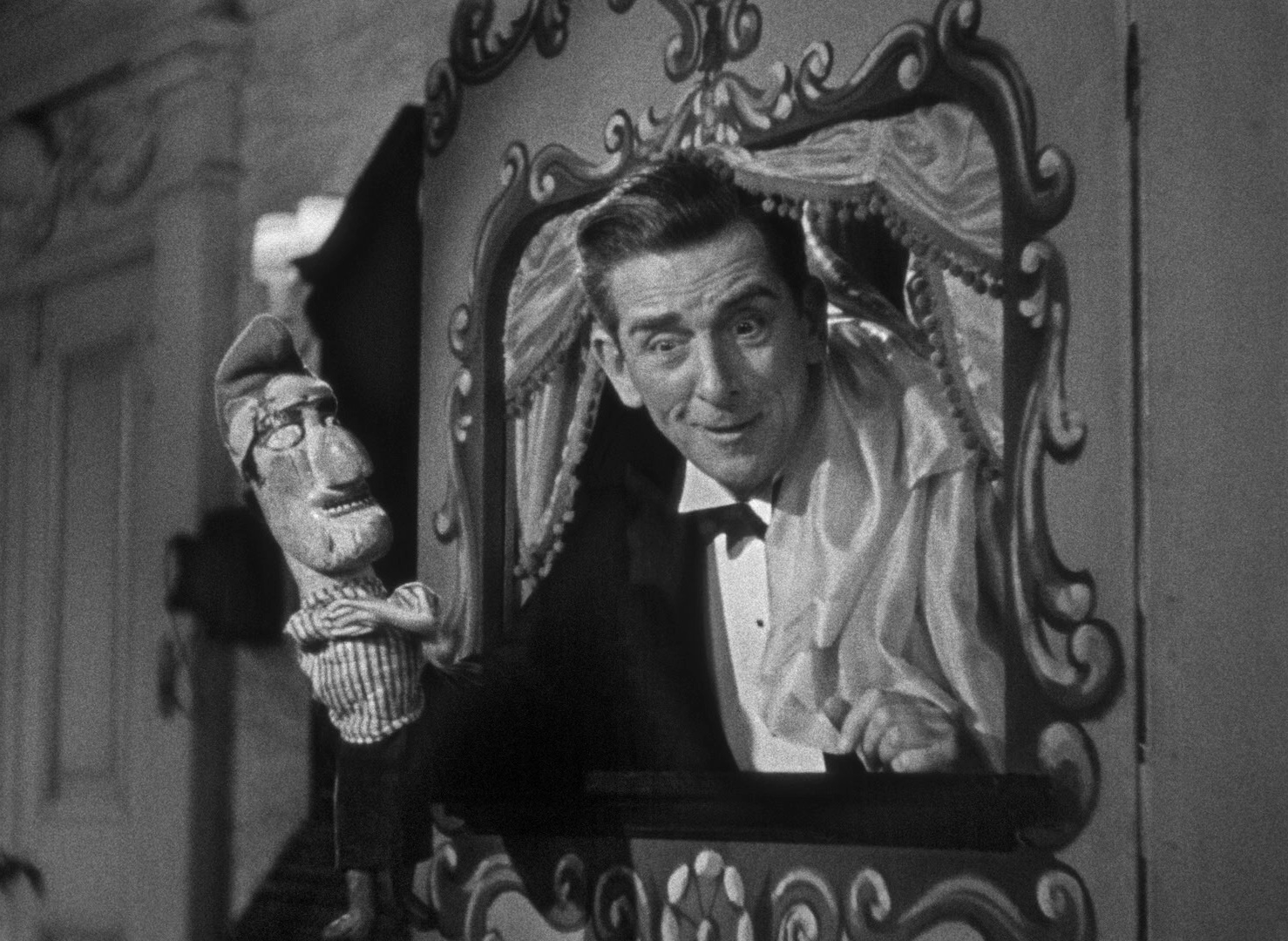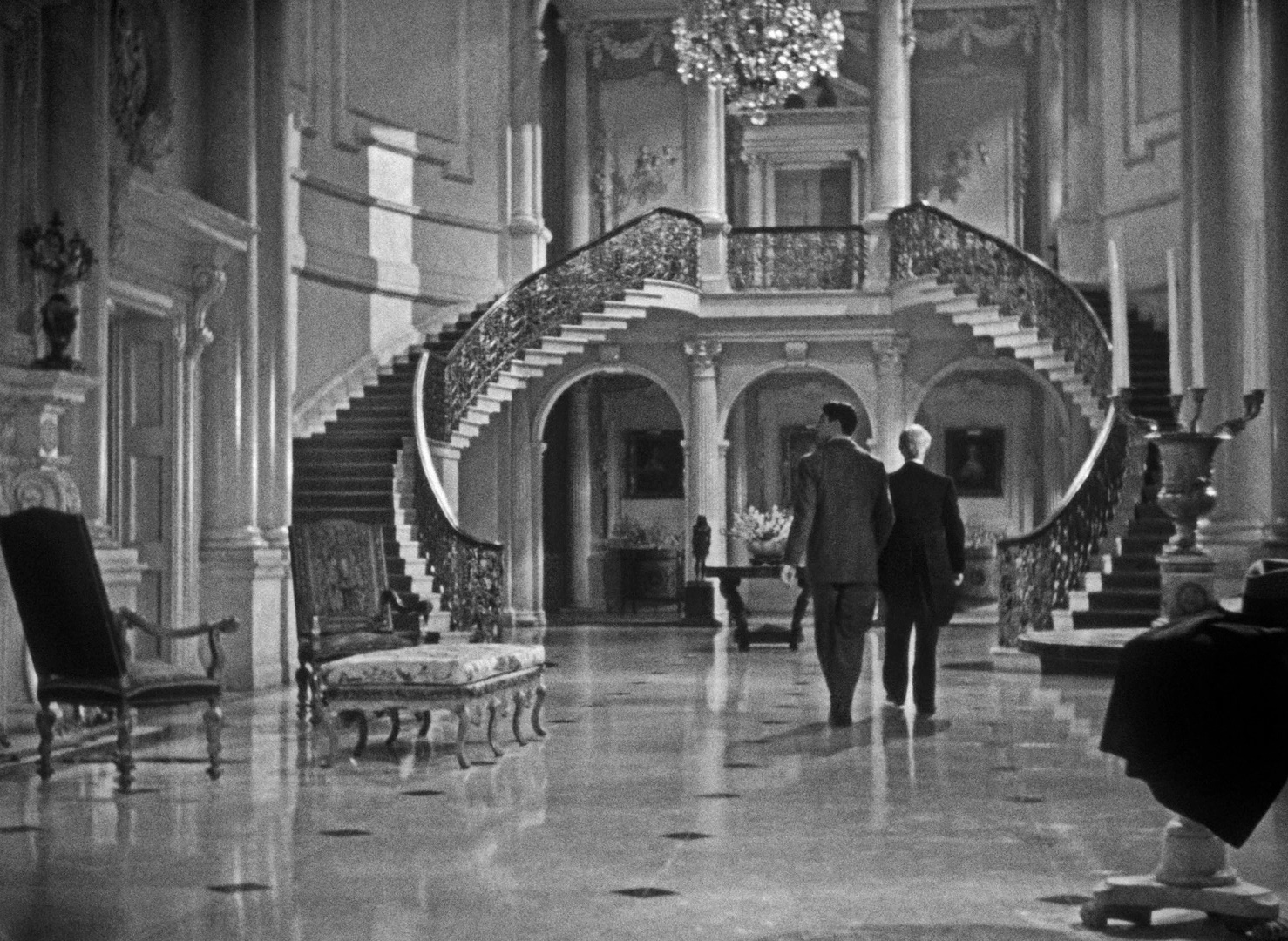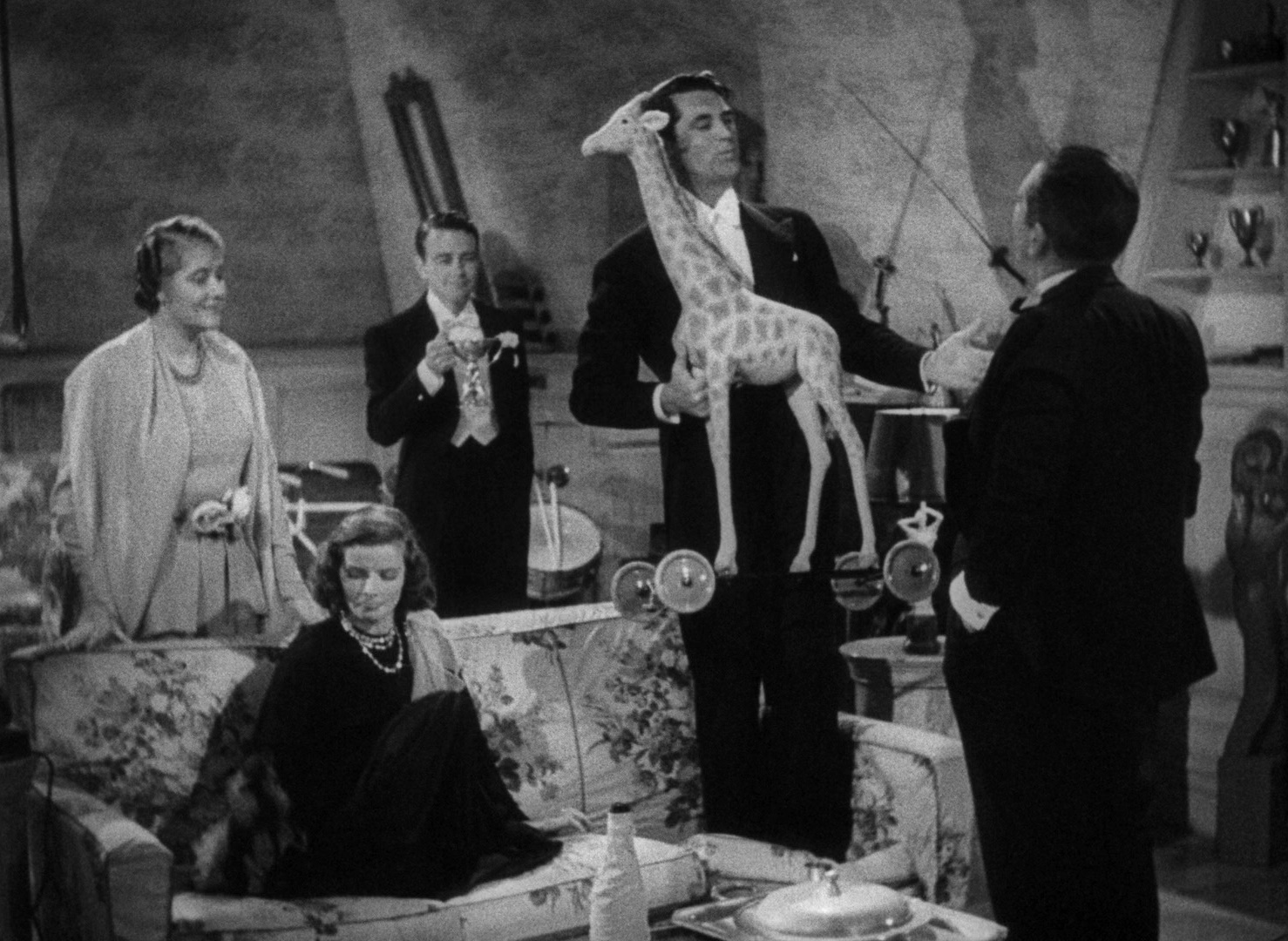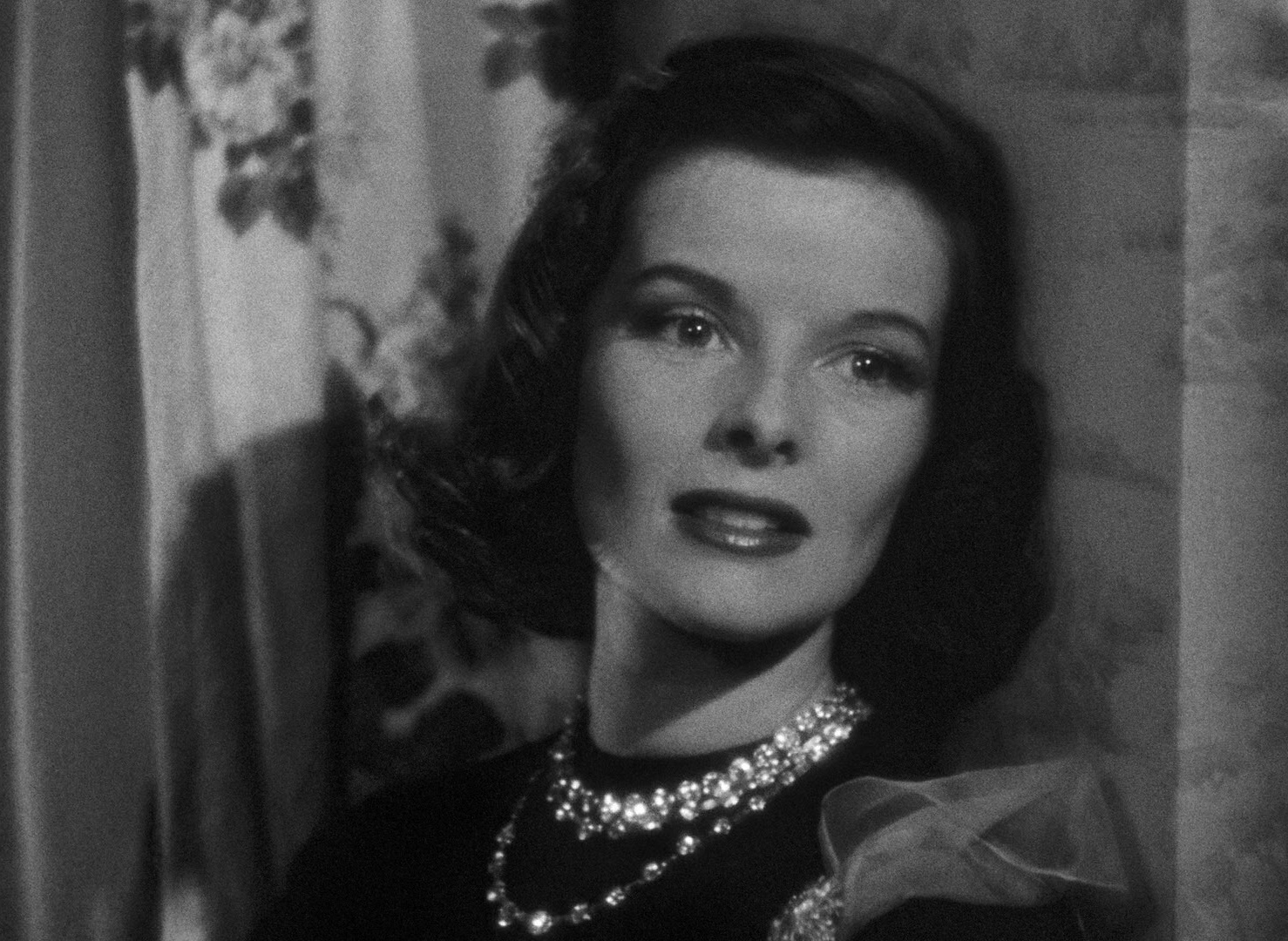| Reviews & Columns |
|
Reviews DVD TV on DVD Blu-ray 4K UHD International DVDs In Theaters Reviews by Studio Video Games Features Collector Series DVDs Easter Egg Database Interviews DVD Talk Radio Feature Articles Columns Anime Talk DVD Savant Horror DVDs The M.O.D. Squad Art House HD Talk Silent DVD
|
DVD Talk Forum |
|
|
| Resources |
|
DVD Price Search Customer Service #'s RCE Info Links |
|
Columns
|
|
|
Holiday (1938)
Theirs was such a whirlwind courtship that Julia Seton (Doris Nolan) never quite got around to telling Johnny ChaseCase that she's one of those Setons – that he's about to marry into one of the country's most prestigious and eye-wateringly wealthy families. Pending the approval of her father (Henry Kolker), naturally.
Then again, Johnny hasn't yet broken the news to his bride-to-be that he's on the verge of retirement. Not forever, mind you. Rather than squander away his best years behind a desk – toiling for however many decades until he's too old to properly enjoy retirement – Johnny would rather make the most of his youth, have the time to figure out who he really is, and put off the grindstone as far towards middle-age as possible. Already having put in quite a bit of work, Johnny has just about squirreled away enough cash to take that sort of indefinite holiday too! He has every hope of Julia joining him on this adventure – and leaving her own checkbook behind.
Julia's older sister Linda (Katharine Hepburn) thinks it's a grand idea, but then, she's always marched to the beat of her own drum. It'll take quite a lot to convince the ::harumph!:: more traditional Setons about this scheme, or perhaps they'll wear Johnny down and convince him to sign on with Father's banking firm instead. Untold millions of dollars await! Regardless, someone's going to have to decide something; they've thrown a lavish New Year's party (or two) to announce the impending nuptials, and the clock's hands are pointing perilously closely to midnight.
There's an unavoidable temptation to compare Holiday to The Philadelphia Story. Both, after all, were based on plays by Philip Barry, both film adaptations were co-written by Donald Ogden Stewart and directed by George Cukor, and both star Cary Grant and Katharine Hepburn (as the eldest daughter of a prestigious and impossibly wealthy family, even!). Its approach is altogether different, however. As noted in the extras of this special edition, Holiday is a romantic comedy that aims more for grins and light chuckles rather than hearty, way-deep-down-in-the-belly guffaws. For instance, Julia makes it a point to break the news of her engagement to her father at church, where he can't reply without being shushed. Or take this exchange:
"I hadn't any connections except for an uncle who's in the roofing business in Wilmington. Wasn't much good, though; he was inclined to get drunk. Still is."
"We had an uncle like that, but he keeps off roofs."
It's certainly funny, but in a more understated way. It's also intriguing that Holiday isn't the fish-out-of-water comedy one might expect. Despite his tumultuous, less-than-privileged upbringing, Johnny Case has made quite a life for himself. This particular degree of opulence is alien to him, sure, but with Johnny's financial savvy, a fortune worth millions of dollars wouldn't be the least bit out of the question if that were the destination he ached for. Johnny doesn't know what he wants, exactly, but he knows it's not the blind pursuit of wealth. Time and freedom are of far greater value to him than bonds or real estate. And that's the core of the divide. Ned (Lew Ayres) and Linda have both seen their creative ambitions squashed. Julia and her father fervently believe that such childish notions should be set aside in favor of something sensible. You work, you make money, you invest that cash so you can make even more money still, and one day, many years later, you take a step back and retire. That's what you're supposed to do. Why? Because...well, that's what you're supposed to do.
And then there's the anticipation of the clock striking midnight, as the announcement of Julia and Johnny's engagement is to be made to an audience of the most elegant people in all of New York. And, ideally, they'll have this hashed out before breaking the big news. There's no meeting in the middle here; either Johnny abandons his dream or Julia joins him on his endless-ish holiday. And while we're in a position to know what the best possible answer is to this crisis – and you and I both know it doesn't involve dull-as-dishwater Julia – Holiday ekes quite a bit of suspense from whether or not anyone else will arrive at the same conclusion in time.
Holiday benefits further from an extraordinary cast. Grant and Hepburn are, of course, one of the silver screen's most legendary pairings. Edward Everett Horton – returning from the 1930 adaptation of the play – runs away and steals every scene he's in as Nick Potter, Johnny's best pal. I can't get enough of the conniving cousins (Henry Daniell and Binnie Barnes) strolling up the stairs, deftly alternating between force-fed cheery salutations and half-muttered snark. Lew Ayres elevates what could've been a thankless role as Julia and Linda's drunken brother into someone truly likeable and sympathetic. Similarly, Henry Kolker could've drawn the elder Seton as a villain, but he's really not. Destructive though it is – the source of Linda's frustration and Ned's alcoholism – Mr. Seton genuinely believe he's doing the right thing. He is, in his own ways, kind and generous. The tragedy is that he's blind to any path but the one he's chosen, and his family has suffered greatly for it. The only performer who doesn't leave this sort of impression is Doris Nolan as Julia, which is very much by design. Not that anyone could outshine Katharine Hepburn, but it wouldn't be to Holiday's benefit – or for the premise to hold water – if it were all that close a contest.
And while there's some dreadful part of me that's more tempted to write an essay rather than a review – say, Linda's playroom representing the childlike wonder and creative energy long repressed by the overbearing patriarch – I'll do my best to rein in those urges. I wasn't as instantly taken with Holiday as I was with The Philadelphia Story or Bringing Up Baby, but there's a great deal to enjoy here, and I have no doubt that this appreciation will only grow with future viewings. And Criterion has ensured that this is a special edition worth revisiting, thanks to a terrific presentation, a couple of lengthy and rewarding conversations about the film, and a second adaptation of Philip Barry's play altogether. Highly Recommended.
Video
It's immediately apparent that Holiday – newly restored from a dupe negative and a nitrate print – has been remastered in 4K. Whether it's the fine, filmic texture or the definition and detail on display, this presentation frequently impresses. Note in the screenshot below how the scalloping in the columns is apparent even far in the distant, shadowy hallway:
The grandeur of the Seton mansion and the opulent production design shine in 1080p. Given how pronounced the film grain is here, Holiday was almost certainly quite a challenge to encode, and I'm pleased to report that there are no concerns on that front. The presentation overall is immaculate, free of any speckling or weathering of note. I can't help but be struck by the gleaming whites of tuxedo shirts, Linda's white button-up, and assorted specular highlights. Criterion and Sony have delivered what is in every way a marvelous presentation, and even with as accomplished at picking nits as I am, they've left me with little to grouse or groan about. Well done.
Holiday is presented at its original aspect ratio of 1.37:1, and its AVC encode spans both layers of this BD-50 disc.
Audio
Remastered from the original optical soundtrack negative, Holiday far more often than not sounds wonderful. There are many moments where the 24-bit, monaural LPCM audio is dazzlingly clean and clear, belying the film's age by a great many years. The full-bodied track doesn't suffer from any pops, clicks, drop-outs, or the like, nor does it clip even when Johnny unleashes his best Tarzan yell in a cavernous hallway. And heck, there's even a diegetic slide whistle: something I'm too rarely treated to on film.
Even with as perfect as Holiday so often sounds, there are lengthy stretches when an undercurrent of noise tethers itself to dialogue but vanishes in the silence between words – a sort of sweeping broom quality that I can't say I find all that pleasant. I've recorded one example below. That's not a persistent nuisance, it's not terribly unusual besides, and it does little to diminish my enthusiasm for what it is otherwise such a splendid sounding release.
Also included is a set of English (SDH) subtitles.
Extras
- Holiday (1930) (91 min.; HD): As it turns out, Criterion's special edition is a double feature, also including the 1930 film adaptation of Holiday. This pre-Code release – directed by Edward H. Griffith and starring Robert Ames, Ann Harding, Mary Astor, and, yes, Edward Everett Horton – was nominated for two Academy Awards. Despite having been produced less than a decade before the 1938 version, this stiff, staid adaptation feels as if it hails from an altogether different era.
Its laughs are more sparse. The most memorable moments from the 1938 production are nowhere to be found. We see far less of the playroom (no Punch and Judy show!), the physical humor hadn't yet been brought in, Johnny and Julia arrive at her palatial home together, the cousins are more blandly insufferable, and it ends on a decidedly ambiguous note. We do get a wedding rehearsal in the bargain, though, and there's something to be said for that. And although Ann Harding was nominated for an Oscar for her turn as Linda, neither she nor much of anyone else on the bill can muster the same charm or presence of the later adaptation's cast.
Still, I'm thrilled that Criterion has seen fit to bring this earlier adaptation to Blu-ray, especially given how lovely it generally looks. Yes, the bitrate is considerably lower, the audio is lossy, and there's far more damage and wear on display, but I'm overall quite pleased with this presentation.
- Sragow & Schlesinger (35 min.; HD): Holiday may not be accompanied by an audio commentary, but this conversation between Michaels Sragow and Schlesinger conveys everything you could've hoped to hear and in a fraction of the time.
The two film historians don't stop at comparing and contrasting this 1938 movie with the largely laughless original stage production and the 1930 adaptation; they also discuss it in the context of an unofficial Grant/Hepburn trilogy, sandwiched in between Bringing Up Baby and The Philadelphia Story. They delve into much of the key talent on either side of Holiday's cameras, whether it's appreciating the subtle yet effective camera movements of Franz Planer or noting how much Cary Grant's own story mirrors that of Johnny Case. Sragow and Schlesinger also touch on the era's sociopolitical environment as well as the film's feminist undercurrent. We're even offered a look at stills from Holiday's shoot at Lake Placid, no footage from which ultimately made it into the completed film. Easily the most essential of Holiday's extras.
- George Cukor (21 min.): Recorded in the early 1970s, Holiday's director himself discusses the film at length with Gavin Lambert. Among a great many other topics, Cukor speaks about Katharine Hepburn having served as Hope Williams' understudy in the original play, the relationship between Ned and Linda, earning laughs without playing for them, and dispelling the myth of Hepburn as "box office poison".
- Costume Gallery (HD): Eight of the designs by Robert Mero Kalloch III are showcased here, comparing his original sketches with photographs and screenshots of the completed costumes. Care and consideration have been taken to properly introduce each work, rather than merely unleash a stream of images without context.
The centerpiece of the fold-out booklet is Dana Stevens' "Play Mates". It's a marvelous retrospective, and I particularly enjoy the exploration of the crossroads both Grant and Hepburn faced at this point in their careers.
The Final Word
George Cukor. Philip Barry. Cary Grant. Katharine Hepburn. How much more of a review do you really need? Though Holiday wouldn't top the list of the many romantic comedies of Grant's that Criterion has brought to Blu-ray, this very sweet and quite funny story about living life on one's own terms can't help but charm. Criterion has made Holiday that much more irresistible, given the strength of this new restoration, a healthy selection of extras, and a second adaptation of Barry's play. Highly Recommended.
|
| Popular Reviews |
| Sponsored Links |
|
|
| Sponsored Links |
|
|
| Release List | Reviews | Shop | Newsletter | Forum | DVD Giveaways | Blu-Ray | Advertise |
|
Copyright 2024 DVDTalk.com All Rights Reserved. Legal Info, Privacy Policy, Terms of Use,
Manage Preferences,
Your Privacy Choices | |||||||









